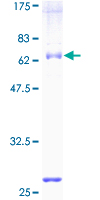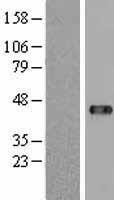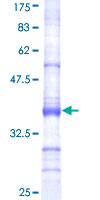order histories, retained contact details for faster checkout, review submissions, and special promotions.
Forgot password?
order histories, retained contact details for faster checkout, review submissions, and special promotions.
Locations
Orders Processing,
Shipping & Receiving,
Warehouse
2 Shaker Rd Suites
B001/B101
Shirley, MA 01464
Production Lab
Floor 6, Suite 620
20700 44th Avenue W
Lynnwood, WA 98036
Telephone Numbers
Tel: +1 (206) 374-1102
Fax: +1 (206) 577-4565
Contact Us
Additional Contact Details
order histories, retained contact details for faster checkout, review submissions, and special promotions.
Forgot password?
order histories, retained contact details for faster checkout, review submissions, and special promotions.
UBP43 / USP18
ubiquitin specific peptidase 18
UBP43 / USP18 belongs to the ubiquitin-specific proteases (UBP) family of enzymes that cleave ubiquitin from ubiquitinated protein substrates. It is highly expressed in liver and thymus, and is localized to the nucleus. This protein efficiently cleaves only ISG15 (a ubiquitin-like protein) fusions, and deletion of this gene in mice results in a massive increase of ISG15 conjugates in tissues, indicating that this protein is a major ISG15-specific protease. Mice lacking this gene are also hypersensitive to interferon, suggesting a function of this protein in downregulating interferon responses, independent of its isopeptidase activity towards ISG15.
| Gene Name: | ubiquitin specific peptidase 18 |
| Family/Subfamily: | Protease , Cysteine C19 |
| Synonyms: | USP18, 43 kDa ISG15-specific protease, ISG43, HUBP43, ISG15 specific protease, Ubiquitin specific protease 18, Ubl thioesterase 18, Ubl thiolesterase 18, UBP43 |
| Target Sequences: | NM_017414 NP_059110.2 Q9UMW8 |
Publications (3)




If you do not find the reagent or information you require, please contact Customer.Support@LSBio.com to inquire about additional products in development.









